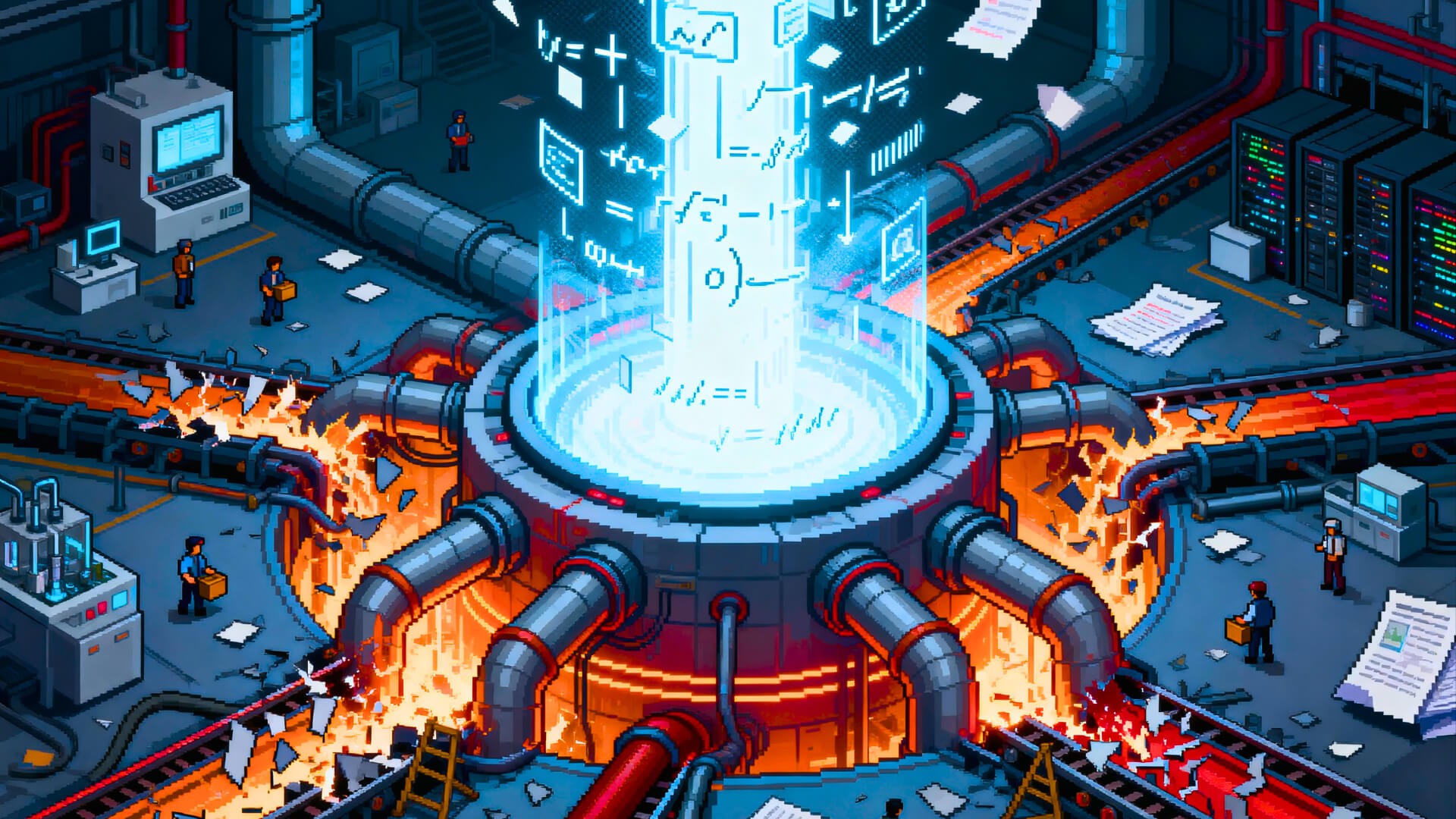Agentic AI vs. Generative AI: Understanding the Future of Artificial Intelligence
In today’s rapidly evolving technological landscape, artificial intelligence (AI) is transforming industries and reshaping business models. Two concepts leading this revolution are agentic AI and generative AI. Both are at the forefront of innovation, offering unique capabilities and applications. This guide delves into their differences, technical foundations, and real-world applications to help organizations harness AI in 2025 and beyond.
Introduction
Recent advancements in AI have opened the door to tools and platforms designed to automate, enhance, and innovate business processes. As enterprises shift toward more intelligent systems, it becomes essential to distinguish between traditional generative AI and emerging agentic AI.
Generative AI systems, such as OpenAI's ChatGPT and Microsoft Copilot, have revolutionized creative content generation by providing responses to specific prompts. They produce text, images, or code snippets that mimic human creativity. In contrast, agentic AI systems not only generate output but also autonomously make decisions and execute complex tasks. They proactively manage processes and adapt to emerging scenarios with limited human supervision.
This piece explores these differences, technical foundations, practical applications, and the potential future convergence of these AI paradigms. We also compare them to similar platforms and discuss modern cloud-native ecosystems and innovative platforms like Ardor.
Understanding the Fundamental Differences
The core difference between generative AI and agentic AI lies in their primary functions and operational methods. Understanding these differences enables businesses to integrate AI effectively into their workflows.
What is Generative AI?
Generative AI systems create original content based on user inputs. They leverage deep learning models and massive datasets to generate text, images, audio, video, or code depending on the input. Key features include:
Reactive nature – These systems respond to user prompts rather than initiating actions independently.
Content creation focus – Their primary function is to create new content that mimics learned patterns.
Pattern recognition – They excel at identifying and replicating patterns from extensive training data.
User-guided operation – Human input sets the context and tone of the output.
Popular examples include OpenAI’s ChatGPT and Microsoft Copilot, which have transformed content marketing, software development, design, and more.
What is Agentic AI?
Agentic AI represents an advanced evolution in AI. Rather than just generating content, these systems make autonomous decisions, execute tasks, and drive complex workflows. Core characteristics include:
Proactive approach – Agentic systems initiate actions to fulfill goals without constant human input.
Autonomous operation – They continuously adapt strategies based on real-time feedback.
Contextual adaptation – They analyze environmental changes and modify their approach to meet evolving needs.
Decision-making capabilities – They use reasoning engines to evaluate options and select the best actions.
In summary, while generative AI answers specific queries through content creation, agentic AI handles broader processes autonomously, making it ideal for multi-step task execution and continuous adaptation.
Technical Foundations: How Each Technology Works
Understanding the architectural differences between generative and agentic AI is key to integrating these technologies.
Generative AI Architecture
Generative AI is predominantly built on transformer-based neural networks. Its primary technological components include:
Deep learning models that simulate human brain functions.
Massive training datasets that help identify stylistic and contextual patterns.
Pattern recognition algorithms to generate coherent, context-aware outputs.
Statistical prediction methods to ensure the generated content aligns with the provided prompt.
When you supply a prompt, generative AI processes the input using these components to output original content reflective of its training data.
Agentic AI Framework
Agentic AI extends large language models with autonomous decision-making capabilities. Its framework features:
Perception mechanisms – Collect data from diverse sources such as databases, IoT devices, and social media.
Reasoning engines – Plan multi-step actions using complex logic.
Action execution – Perform tasks by integrating with external tools and APIs.
Learning systems – Continuously update their knowledge base based on feedback and outcomes.
This blend of perception, reasoning, action, and continuous learning allows agentic AI to perform like a human team member, managing complex workflows and adapting to new challenges.
Real-World Applications and Use Cases
Both generative AI and agentic AI are applied across various industries, though their roles differ significantly.
How Businesses Use Generative AI
Generative AI finds applications where content creation is crucial. Common use cases include:
Content marketing – Automating the generation of articles, social media posts, and marketing copy to save time and maintain consistency.
Product descriptions – Crafting unique descriptions that engage customers and boost SEO rankings.
Data analysis – Uncovering trends and insights from large datasets.
Software development – Assisting in code creation, documentation, and debugging to accelerate development cycles.
Design assistance – Generating visual content from textual descriptions to support creative teams.
How Businesses Use Agentic AI
Agentic AI, with its autonomous decision-making, is suited for more complex applications. Key use cases include:
SEO management – Researching and optimizing keywords, analyzing backlinks, and adjusting strategies in real time.
Customer service – Operating support channels and resolving issues with minimal human intervention.
Technical optimizations – Managing website speed, mobile responsiveness, and schema markup.
Workflow automation – Coordinating complex processes across systems and handling resource allocation.
Performance tracking – Continuously monitoring metrics and generating insights to optimize operations.
Agentic AI drives both day-to-day tasks and strategic decision-making, delivering a significant advantage in operational efficiency.
Additionally, platforms such as Ardor integrate both generative and agentic capabilities to support scalable, cloud-native applications, while modern architectures like Kubernetes, Knative, and Kafka offer the technical backbone for such implementations.
SEO and Digital Marketing Applications
AI is reshaping SEO and content strategies by addressing different components of the digital marketing ecosystem.
Transforming SEO with Agentic AI
SEO requires continuous adjustments and data-driven decision-making. Agentic AI transforms SEO practices by:
Providing automated content creation and optimization with SEO-friendly text.
Enabling advanced keyword research through monitoring search trends, competitor strategies, and user behavior.
Delivering real-time strategy adjustments based on performance data.
Handling technical SEO details such as site speed, mobile responsiveness, and schema markup.
Managing backlink analysis to identify opportunities and assess quality.
By automating technical and on-page SEO tasks, agentic AI allows experts to focus on strategic initiatives and creative marketing efforts.
Meta Description Generation and Optimization
Meta descriptions greatly influence click-through rates in search results. AI agents optimize meta descriptions by:
Analyzing page content to extract the most relevant information.
Incorporating relevant keywords while keeping descriptions human-friendly.
Adjusting the length to avoid truncation in search results.
Integrating clear calls-to-action to boost engagement.
Continuously testing and refining based on performance data.
Implementation Considerations and Best Practices
Organizations looking to adopt advanced AI technologies should follow a methodical approach:
Define clear objectives – Map out specific goals and use cases for content generation, SEO optimization, or workflow automation.
Start small – Begin with limited-scope projects to understand capabilities before scaling up.
Select appropriate tools – Choose platforms that integrate seamlessly with existing systems, such as Ardor, and fit your organizational needs.
Establish governance frameworks – Create guidelines for AI use, including ethical considerations, performance metrics, and risk management.
Invest in training – Enhance team skills to work effectively with AI tools and interpret outputs accurately.
These guidelines help mitigate risks and develop adaptive systems that drive competitive advantage.
Challenges and Solutions
Despite the impressive capabilities of generative and agentic AI, challenges remain:
Technical setup difficulties – Integrating APIs, configuring platforms, and selecting the right models require comprehensive documentation and vendor support.
Quality control – Ensuring outputs meet enterprise standards necessitates robust review processes.
Legacy system integration – Linking advanced AI with older systems can be complex; modular and adaptable solutions can ease this process.
Performance monitoring – Continuous tracking of AI performance and ROI is crucial, and modern platforms now support natural language queries for detailed log analysis.
Keeping up with change – Regular updates, community support, and continuous improvement are necessary as the AI landscape evolves.
Overcoming these challenges requires technical solutions and a cultural shift toward agile, adaptive methodologies.
The Future of AI: Convergence and Evolution
The distinctions between generative and agentic AI are likely to blur in the future as hybrid systems emerge that combine creative output with autonomous decision-making. Advancements to expect include:
Hybrid systems that independently execute tasks while dynamically generating tailored content.
Collaborative frameworks that enhance human-AI interactions, with AI handling background execution and decision-making.
Adaptive learning that continually improves performance based on real-world feedback.
Enhanced autonomy where the line between automated execution and content creation becomes seamless.
Preparing Your Organization for the AI Future
To be ready for these advancements, companies should:
Develop AI literacy to understand AI capabilities and limitations.
Create flexible, cloud-native infrastructures that support evolving AI models.
Foster a culture of innovation by encouraging pilot projects, hackathons, and continuous learning.
Establish ethical guidelines to ensure data privacy, fairness, and transparency.
Conclusion and Final Thoughts
AI technology is evolving toward a future where the separation between content creation and autonomous decision-making fades. Generative AI has already transformed creative fields like content marketing, design, and software development. Meanwhile, agentic AI is set to revolutionize operational workflows with fully autonomous systems that execute complex processes with minimal supervision.
Before implementing AI solutions, assess your organization’s needs, infrastructure, and long-term strategy. For many businesses, integrating generative capabilities with agentic intelligence will offer both innovation and efficiency.
In today’s cloud-native ecosystem, innovative platforms continue to emerge. For example, companies like Ardor are working to integrate AI throughout the software development lifecycle, enabling even non-experts to build intelligent applications using natural language prompts and AI guidance. As enterprises strive to reduce costs and streamline processes, adaptable, agentic-first solutions are becoming indispensable.
Next steps:
Are you ready to harness the transformative power of AI in your business? Start by identifying areas where intelligent, autonomous capabilities can add value alongside creative content generation. Embrace the future of intelligent applications and join the movement toward efficient, agentic-first solutions.
Stay connected with our community discussions on LinkedIn, Reddit, and other build-in-public platforms for more insights on integrating AI into your business.
References
WPAI Workflow Automation - How Agentic AI is Transforming SEO
C9 - Understanding Agentic AI: Your Top 15 Questions Answered
Confluent - The Top 5 Challenges in Agentic AI and How to Overcome Them
TTEC Digital - Q&A: Is Agentic AI Ready to Take Over the Contact Center?
FAQ
What is the difference between generative AI and agentic AI?
Generative AI focuses on creating new content like text, images, or music based on learned patterns. Agentic AI, however, autonomously makes decisions, takes actions, and pursues goals with minimal human intervention, often using tools like generative AI as part of its process.
What is the difference between ChatGPT and agentic AI?
ChatGPT is a generative AI model that generates human-like text based on prompts. Agentic AI, in contrast, refers to systems that can independently decide and act to achieve goals, potentially incorporating models like ChatGPT.
What is the difference between artificial intelligence AI and generative AI?
Artificial Intelligence (AI) is a broad field encompassing techniques that mimic human intelligence, such as learning and decision-making. Generative AI is a subset of AI specifically focused on creating new content like text or images.
What is the difference between traditional AI and agentic AI?
Traditional AI typically involves rule-based systems that follow predefined instructions for specific tasks. Agentic AI, however, can adapt, make decisions, and pursue goals autonomously, marking a shift toward more dynamic systems.





